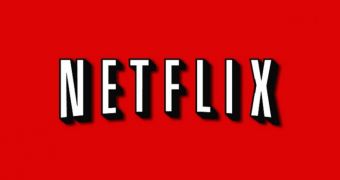Netflix couldn’t care less about Verizon’s threats to sue because of the warnings that the former has started to display to users who have troubles viewing the content they desire because of a poor Internet connection.
Last week, Verizon sent Netflix a cease and desist letter threatening to sue unless the notices stop, saying that they were bad for business. The messages point out that it is the ISPs fault that the videos are buffering. “The Verizon network is crowded right now. Adjusting video for smoother playback,” reads the notice.
Not only did the ISP blame Netflix for the troubles, but it also wanted a list of all customers who received the messages and evidence that they were justified.
Netflix’s David Hyman, general counsel, has formally issued a response. “The message you cite to in your letter merely lets our consumers know that the Verizon network is crowded. We have determined this by examining the difference between the speed at which the Verizon network handles Netflix traffic at peak versus non-peak times,” he wrote.
Hyman mentioned that the new messages that customers are getting are part of an effort to increase transparency by letting them know that their Netflix experience is being affected by congestion on their broadband provider’s network. This is also not directed at Verizon alone, but at providers from across the United States.
Netflix wasn’t afraid to stress the important issue of the entire situation, namely that Verizon wants to sue Netflix because it tells consumers when their ISP is to blame for the lousy service quality they’re getting.
“Your attempt to shift blame for our customers’ experience on the Verizon network ‘squarely to Netflix itself’ disregards Verizon’s responsibility to provide its customers with the service it has promised them. Verizon sells residential Internet access to its customers. In fact, it is my understanding that Verizon actually upsells customers to higher speed packages based on improved access to video services, including Netflix,” Hyman wrote.
The Netflix general counsel scolds Verizon because it is an ISP’s job to ensure that its customers get the level of service they pay for and it’s the ISP’s responsibility to make sure the network, including the interconnection points, has sufficient capacity to accommodate the data requests made by these customers.
He even compares Verizon’s efforts to shift blame to Netflix to blaming drivers on a bridge for traffic jams when you’re the one who shut down three lanes during rush hour.
It should be mentioned that Verizon and Netflix have actually signed an agreement that would ensure that customers get higher connection speeds to Netflix content since the video streaming company is paying for this. Basically, Verizon gets paid by its customers for having an Internet connection and by Netflix so that consumers can receive proper-quality content and it still doesn’t deliver.
The fact that customers are still having troubles indicates that Verizon has yet to act upon the agreement. At the very least, after signing a deal with Comcast, customers immediately started noticing higher speeds, as Netflix’s report has shown.

 14 DAY TRIAL //
14 DAY TRIAL //